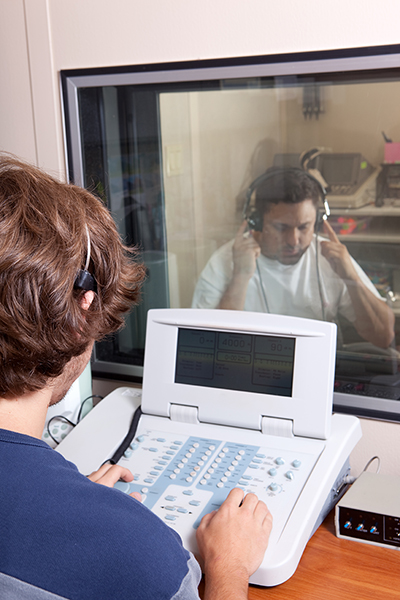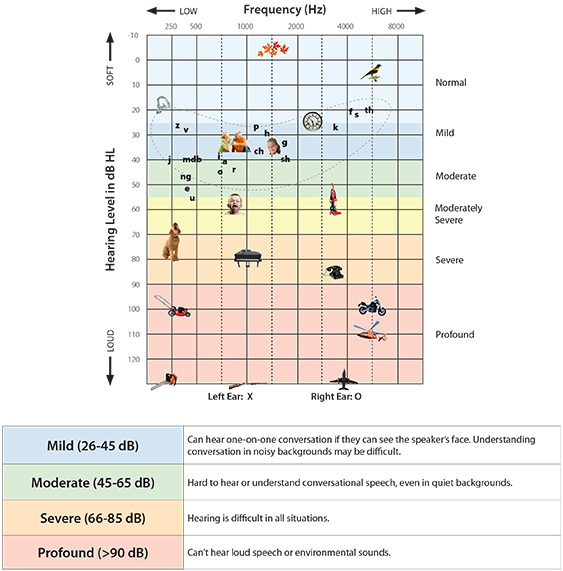Adult Hearing Services
Hearing Testing for Adults
If you have noticed changes in your hearing or if a family member or friend has noticed that you aren’t hearing well, take the time to have an evaluation.

Who Can Evaluate My Hearing?
Audiologists are the primary healthcare professionals who evaluate, diagnose, treat and manage hearing loss. Audiologists hold Masters or Doctor of Audiology (AuD) degrees and must be licensed in the State of California to practice.
Adult Audiologic Evaluation
The evaluation usually lasts Ito 1-1/2 hours. Your appointment will include the following:
- Patient interview. Please be prepared to discuss your concerns and any medical history relating to your hearing problem.
- Otoscopic evaluation. Visual examination of the ear canal and eardrum.
- Comprehensive audiologic evaluation. Consists of the following different examinations to determine if a hearing loss exists, its type and its severity:
- Pure-tone audiometry: The audiologist records the softest levels at which you can just hear a variety of pitches.
- Speech discrimination test: This determines how well you can distinguish words at a certain loudness level.
- Immittance test: A probe in the ear canal records movement of the eardrum and reflexes of the middle ear muscles.
- Otoacoustic emissions: A probe measures the inner ear’s response to sound.
Your Results

After the evaluation is completed, your audiologist will review your results, make any necessary referrals and/or recommendations and give you a copy of your audiogram. You may be referred to an Otolaryngologist (ENT) for follow up and/or medical clearance for hearing aids. Your audiologists may recommend communication strategies, assistive listening devices (ALDs), hearing aids, and/or a tinnitus specialist or hearing loss counselor.
Degree of Hearing Loss
Your evaluation will allow an audiologist to tell you the nature of your hearing loss, if any. Audiologists use general terms (normal, mild, moderate, severe, and profound) to characterize the degree of hearing loss. Hearing loss is measured in decibels (dBs) and the general categories refer to an average of the decibel level of hearing loss present.
In general, people with normal hearing (up to 25 dB hearing loss for adults, up to 15 dB for children) can hear most speech sounds in quiet and comfortable listening situations. For information regarding children with hearing loss, please see “Children and Pediatric Hearing Loss.”
Adults with mild hearing loss (between 26 and 40 dB) may hear reasonably well in one-on-one conversation, but will miss words and speech sounds when speech is quiet or when there is background noise present.
Adults with moderate hearing loss (between 41 and 70 dB) miss a lot of speech sounds and telephone conversation. They often ask for repeats and often say, “What did she say?”
Adults with severe hearing loss (between 71 and 90 dB) need hearing aids to perceive speech sounds almost all of the time. People with severe hearing loss will miss the vast majority of conversational speech and using telephones will be very difficult.
Adults with profound hearing loss (91 dB or more) cannot hear speech sounds even if they are very loud. People with profound hearing loss need hearing aids or cochlear implants to perceive speech sounds.
